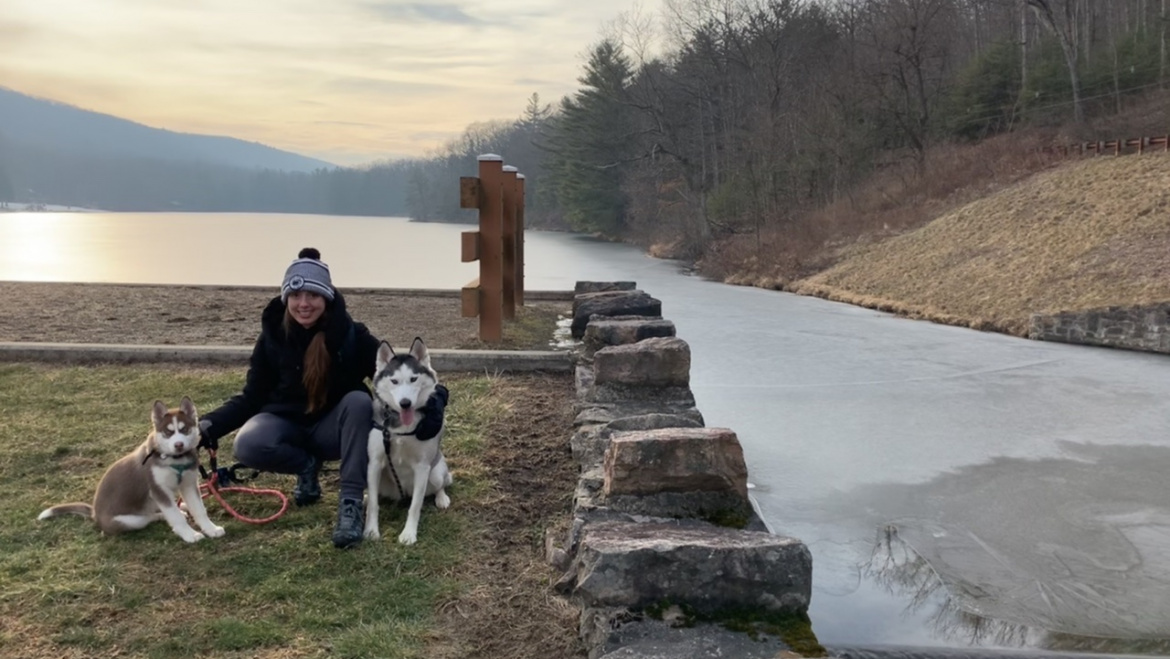Who wouldn’t want to eat more, strengthen their bones, support their immune system, improve cognitive function, have deeper sleep, and get a release of happiness neurotransmitters? So what is the secret, you ask? Exercise!! Physical activity is a vital part of longevity, satisfaction, and good health.
We all know some of the benefits of exercise, but check them out:
- Reduces blood pressure
- Decreases BMI
- Decreases total cholesterol
- Improves lung function
- Decreases Depression scores
- Increase gut microbiota diversity
- Decrease total body inflammation
- Decreases risk of Alzheimer’s Disease
- Decrease colon and breast cancer risk
- Decrease relative risk of all-cause mortality by 20-35%
- Decrease the risk of developing Type 2 Diabetes and improve management of Type 2 diabetes
- Reduces the risk of falling
- Decrease reported feelings of stress
- Decreased risk of osteoporosis and improves bone health
- Improve sleep
- Increase energy levels
Do you know that physical activity improves the immune system as well?
That’s great news in light of Covid-19! In a recent paper published in the International Journal of Immunology Review, the researchers asserted that short-term exercise can help the body target pathogens, and long-term exercise slows age-related changes in the immune system. Past studies also found that regular physical activity may reduce the incidence of upper respiratory tract infections (URTIs). And people with an upper respiratory infection who regularly performed daily moderate exercise for at least12–15 weeks had a decrease in symptoms and experienced symptoms for a shorter period of time vs. the sedentary control population.
Regular physical activity has a positive effect on both the innate and the adaptive immune systems, meaning that it affects your body’s ability to fight off pathogens and develop memory cells that will fight off those same pathogens more effectively in the future. In fact, exercise enhanced vaccination response, increases T-cell proliferation capacity, lowers circulatory levels of inflammatory cytokines, increases neutrophil phagocytic activity (those are the ones that engulf bad bacteria like Pac men!), and increase Natural Killer cell activity (those are virus and cancer-fighting cells). One study showed that 10 months of moderate cardiovascular exercise extended the antibody response to the flu vaccine in older adults aged 60 to 83 years old.
So how much do you need to exercise to get these amazing immune-boosting benefits?
Moderate exercise 45-60 minutes per day 3 to 5 days a week between 50-75% of maximum capacity was found to be immune protective. Activities include hiking, elliptical, stair climbing, cycling, and walking. This is more than a leisurely stroll on flat ground—which is still beneficial, but your body needs more. Mix in hills and intervals in which you speed up every few minutes.
More is not better! And Harder is not better!
Intense, prolonged exercise may compromise immune functions if you are not careful. We know that aerobic exercise is great for us and has a long list of wonderful metabolic benefits. Still, in the wrong context, exercise can wear us down, elevate cortisol and insulin levels, generate inflammatory chemicals, and lock us into a survival metabolism in which we vigorously store fat and arrest the building of muscle. Are you one of those women who feels like they barely eat but goes to the gym and still isn’t losing weight? This can be why.
I used to be trapped in the cycle of cardio and working my body into the ground. Workouts would leave me feeling tired and burnt out sometimes. But what if I tell you that exercise is supposed to energize you and make you feel better afterward? Joyful movement is the key! Whatever that looks like to you. For me, it is trail running with my dogs, biking with my husband, hiking, and weightlifting with my best friend. For Laura, its roller skating and a mix of cardio and weights. For Monica, it is daily hikes with her dogs and swimming in a lake in the summer.
I know what you’re thinking: ”Caitlin, you’re young and skinny. What do you know?”
Well, I wasn’t always at a healthy body weight. I had a period in which I didn’t exercise for two years and was depressed. I can be “one with the couch” for hours, and I absolutely hate being cold. It takes willpower and prioritization of your health to begin exercising regularly. I found that if I sign up for community races, that gets me motivated to work out. And if I find buddies, that makes all the difference. I have never gravitated towards weightlifting, and I’m busy (full-time grad school, near full-time work, and wedding planning this past year), so I found a friend who would weight lift with me twice a week. Together we motivate each other, and it’s fun. In our busy lives, that is really the only time we get to see each other. For outdoor activities, I traditionally would stop going outside November through March. Now, my dogs (huskies!!!) motivate me to keep exercising year-round. They are my hiking, walking, and running buddies. Lastly, I make music playlists that I sing and dance to.
Exercise is a celebration of what your body can do and your health.
Regular exercise has a tremendously positive effect on our health and wellbeing, both today and in the future, but we also need to look at the motivating forces that drive us to exercise. Healthy habits driven by fear or self-hatred are not so healthy after all. Deep, self-limiting thoughts can do nothing but suppress metabolism, even in the face of intense, calorie-burning workouts. Instead, you should exercise and move from a place of inspiration, freedom, and joy. Exercise is a celebration of what your body can do and your health. It is a treat for your body. Reward yourself by going for a walk during lunch. Instead of “working out,” reimagine it as joyful movement and play. Play is all about attitude, and research shows that “playing” has additional physiological and psychological benefits on top of regular physical activity.
It is way too easy to be sedentary in the 21st century, but it is also VERY easy to be active. We have great waterproof technology, access to gyms, free videos online, apps on our phones, wireless headphones, and more! Begin by setting a small goal and then build upon it. Some is better than nothing! It is not all of nothing. You can start with three walks a week. Stop saying to yourself “once X happens then I will start.” You’re not getting any younger or healthier! You and your body deserve to feel better now.
Habits take anywhere from two weeks to six months to take root, but on average, research shows two months. I promise that the most challenging part is starting a routine, then it will become a habit, and, finally, just a part of your lifestyle.
Think of it this way — getting outside and moving for 30 minutes to an hour is a lot easier than restricting what you eat the other 23 hours of the day!
You should also get outside year-round. Research shows that exercise in “green space” leads to increased parasympathetic activity, improved heart rate variability, decreased adrenaline, norepinephrine, and cortisol, and increased Natural Killer Cell activity. Physical activity outside has also been found to foster creativity, imagination, and new ideas. Going outside is a free and safe alternative to the gym during Covid.
Some tips:
- Invest in good quality wind-proof and water-proof clothing. I have a NorthFace jacket that is over 10 years old, is thin, comfortable, and can be worn with nothing but a t-shirt under it in 30-degree weather.
- Try mittens. My hands get cold easily, and ski mittens help keep them much warmer outside than gloves.
- Layer up and then take off if need be. I overdress all fall and winter. Even if you think you don’t need that hat or that extra layer, wear it to start, then take them off as you warm up. It is a lot easier to cool down by taking things off versus get warm when you start off cold.
- Get a pedometer or use a watch that tracks your activity and steps. Aim for 10,000 steps throughout your day. They are a great way to see your hard work reflected and keep you motivated.
- Rest when needed and don’t feel guilty about it.
- Avoid setting yourself up for failure — don’t set unrealistic goals and don’t attempt too many changes at once.
- Believe in yourself. You are stronger and more capable than you think.
- Plan for barriers. Have indoor activities in mind for bad weather days.
- Find your buddies. Whether they be humans or animals. If you don’t have anyone near you, do a “walk and talk” with a friend or a family member who lives far away. Or set the goal with your exercise buddy that you will complete the same workout video from home on the same day.
- Ensure that you get adequate protein in your diet and talk to your nutritionist about how to fuel your body properly. Timing of food does have an impact on exercise.
- If pain is a limiting factor, reach out to your nutritionist who can help mitigate pain through diet and supplementation.






Add Comment